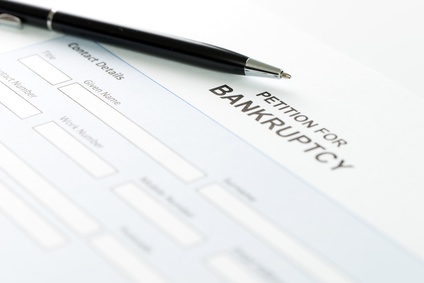There are some companies which target people in up and running IVAs and try to persuade them that they should have gone bankrupt in the first place and that it is not too late to do so. These companies often get their list of potential clients from the IVA register and contact them by mail-shot. They may even imply that the original advice (to offer an IVA to creditors) was the wrong advice and debtors are told that the IVA may have been ‘missold’ to them. The OFT has issued warnings to some of these companies which promote bankruptcy to debtors who are already in IVAs and may charge large fees for their services if the debtor decides to use them.
Claiming that any debtor was ‘missold’ an IVA simply galls with the insolvency professionals (IPs) who advise debtors on all of their options, as required under the insolvency legislation, prior to an IVA being prepared and offered to creditors. While it is the debtor’s prerogative to choose whichever insolvency solution he or she desires, it would be most remiss of their IP not to indicate strongly which was the preferred solution (IVA, bankruptcy or other), in terms of benefit to the debtor and to creditors. Failure to do so (consider and advise on the options), leaves the IP open to disciplinary action from his or her regulatory body and sanction by the Insolvency Service.

There is an assumption that a debtor in an IVA who petitions for bankruptcy may have to pay much less in an Income Payments Order (IPO) that he or she has to pay in the IVA (monthly contributions). Not true. Disposable income is calculated somewhat differently in an IVA compared to bankruptcy but there is not a lot to choose between what the debtor will have to pay and he or she may in fact have to pay even more in bankruptcy than in an IVA. Suppose the debtor is two years into an IVA and then decides to go bankrupt. The IPO is likely to run for three years in bankruptcy so the debtor ends up paying five years contributions anyway.
In terms of credit rating, the clock will start ticking again. The debtor’s credit file will not be clean again for six years following the bankruptcy order, whereas if the debtor had stayed in and successfully concluded an IVA (of say five years duration), the credit file would be clean again in about a further four years.
In terms of losing one’s home or not there is unlikely to be any benefit in going bankrupt as distinct from remaining in an IVA. If there is equity in a property, it is just as likely or indeed more likely to have to be realized for the benefit of creditors in bankruptcy as it would be in an IVA.
The debtor is much more likely to lose his or her house in bankruptcy than in an IVA. There is no gain for the debtor by going bankrupt but creditors may fare somewhat better if the debtor stays in the IVA, due to the lower costs in an IVA compared to bankruptcy.
A third major consideration is the danger that a debtor’s employment may be in jeopardy should he or she petition for bankruptcy. Many employers and regulatory bodies take a much stricter view of employees who become bankrupt and loss of employment or curtailment of promotion prospects is a real risk for debtors in many professions and trades whereas the same sanctions are often not applicable for the debtor in an IVA.
While bankruptcy may appear to be relatively attractive in some instances, a debtor in an IVA would be well advised to think long and hard and to take and consider independent advice before ‘switching’ to bankruptcy on a whim or at the instigation of an unscrupulous company whose main or sole interest is to earn fees by claiming, usually incorrectly, that the debtor was originally ‘missold’ an IVA.